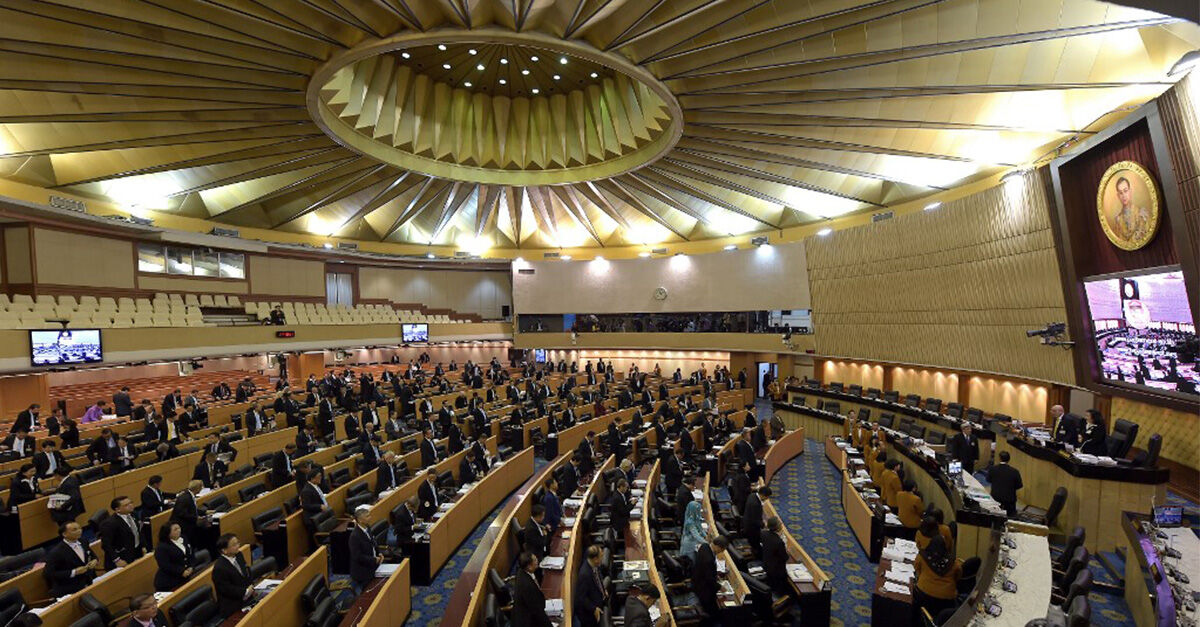Senate to vote on divisive referendum double-majority rule

The Senate is set to convene tomorrow, December 17, to cast votes on a contentious referendum bill concerning constitutional amendments. The majority of senators are anticipated to uphold the divisive double-majority requirement, a decision that has sparked significant debate.
Following a vote by a joint MP-Senate committee, the double-majority rule, necessary for passing a charter rewrite referendum, has been endorsed. Pisit Apiwatthanapong, the committee’s spokesperson on Senate affairs, confirmed the Senate vote is scheduled for tomorrow.
The established procedure requires that once the joint committee endorses the double-majority requirement, each legislative chamber must vote on the rule separately. The Senate will conduct its vote tomorrow, followed by the House of Representatives on the day after.
Previously, a clear division existed between MPs and senators regarding the referendum conditions. The House supported a single-majority requirement, allowing a referendum to pass with just a straightforward majority of votes.
In contrast, most senators favoured maintaining the double-majority rule, which stipulates that over 50% of voters must participate in the referendum and the majority of those votes must approve it.

The disagreement between the two Houses led to the formation of a joint panel tasked with reconciling these differences. However, Senate members on the panel succeeded in retaining the double-majority clause, outvoting their MP counterparts.
It is widely expected that senators will once again support the double majority, potentially overriding the House and delaying the bill’s progress. This action could trigger a 180-day cooling-off period, causing concern that the amendment may not be ratified before the current government’s term ends.
Pisit emphasised yesterday that senators will have the liberty to debate during the referendum discussion, reported Bangkok Post.
“Opinions may differ but they don’t necessarily amount to full-blown conflict.
“Whether one is in the majority, or the minority isn’t the point. What matters is we, as senators, must exercise our duty and express our thoughts.”
Frequently Asked Questions
Here are some common questions asked about this news.
Why is the double-majority requirement considered divisive in Thailand’s constitutional amendment process?
It demands both high voter turnout and majority approval, complicating passage and reflecting deeper political tensions.
How might maintaining the double-majority rule impact Thailand’s legislative process?
It could delay constitutional amendments and stall legislative progress, affecting government stability and reform efforts.
What if the double-majority rule is consistently upheld in future referendums?
This might lead to prolonged political stalemates, necessitating alternative dispute resolution mechanisms or reforms.
How do differing views between the Senate and House influence Thailand’s political landscape?
They highlight institutional power struggles and may shift public trust and political dynamics, shaping future governance.
What are the potential consequences of a 180-day cooling-off period on the referendum bill?
It risks postponing crucial reforms, potentially destabilising political agendas and affecting public perception of government efficacy.
Latest Thailand News
Follow The Thaiger on Google News:


























